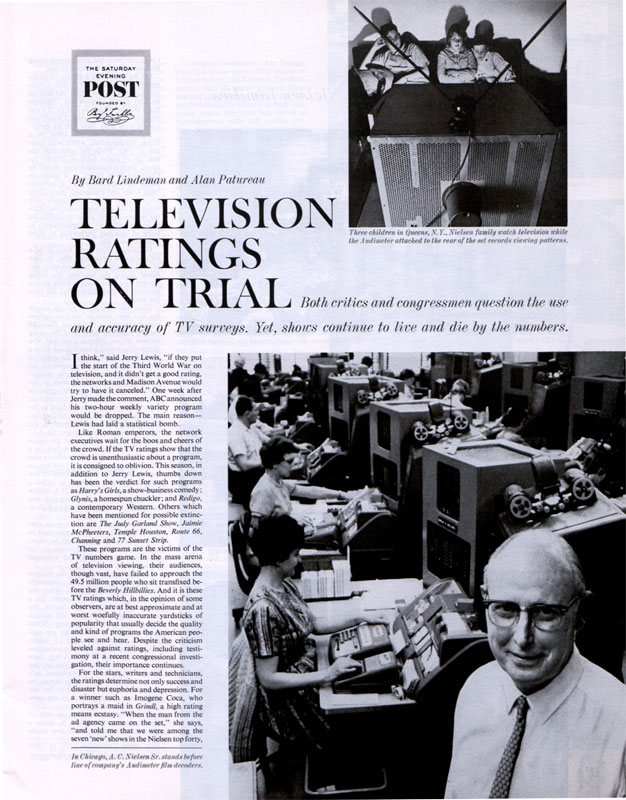—“Television Ratings on Trial” by Bard Lindeman and Alan Patureau, February 8, 1964
There is a limit to the amount of focus and interest that commercial TV can fulfill. They must aim at the mass taste at the broad, lowest common denominator to get the most people to watch for the longest period of time.
They want a viewer to sit for five hours in a sort of apathy, but they don’t want to wear them out so they will turn the set off.

This article is featured in the January/February 2024 issue of The Saturday Evening Post. Subscribe to the magazine for more art, inspiring stories, fiction, humor, and features from our archives.
Become a Saturday Evening Post member and enjoy unlimited access. Subscribe now




Comments
Great article on ratings determination in the (still) early television era. Many people to this day don’t realize television is an advertising medium first and foremost, and the whole point of the shows in the first place are for viewers to watch the commercials and buy the products.
It all comes down to money as always, so the Nielsen ratings (far from perfect) were probably the best gauge of a ‘report card’ on the various shows. It could often result in shows being cancelled before being given the chance to be ‘discovered’ by audiences. M*A*S*H is a great example, getting very poor ratings in its first season. The producers believed in it so strongly, the network renewed it, giving it a chance to prove itself, which we all know it did for many years.
Other times networks want to dump certain shows that may be getting decent ratings, and can’t cancel them outright, so they’ll intentionally move them around on the schedule (different days/times), put them on opposite high performing shows where the executives know they’ll get the low ratings to justify cancellation.
I never paid much attention to the ratings by others. I know what I like and that’s what I watch. Those folks seem to always keep their heads up their @$$e$. Just leave me the hell alone.